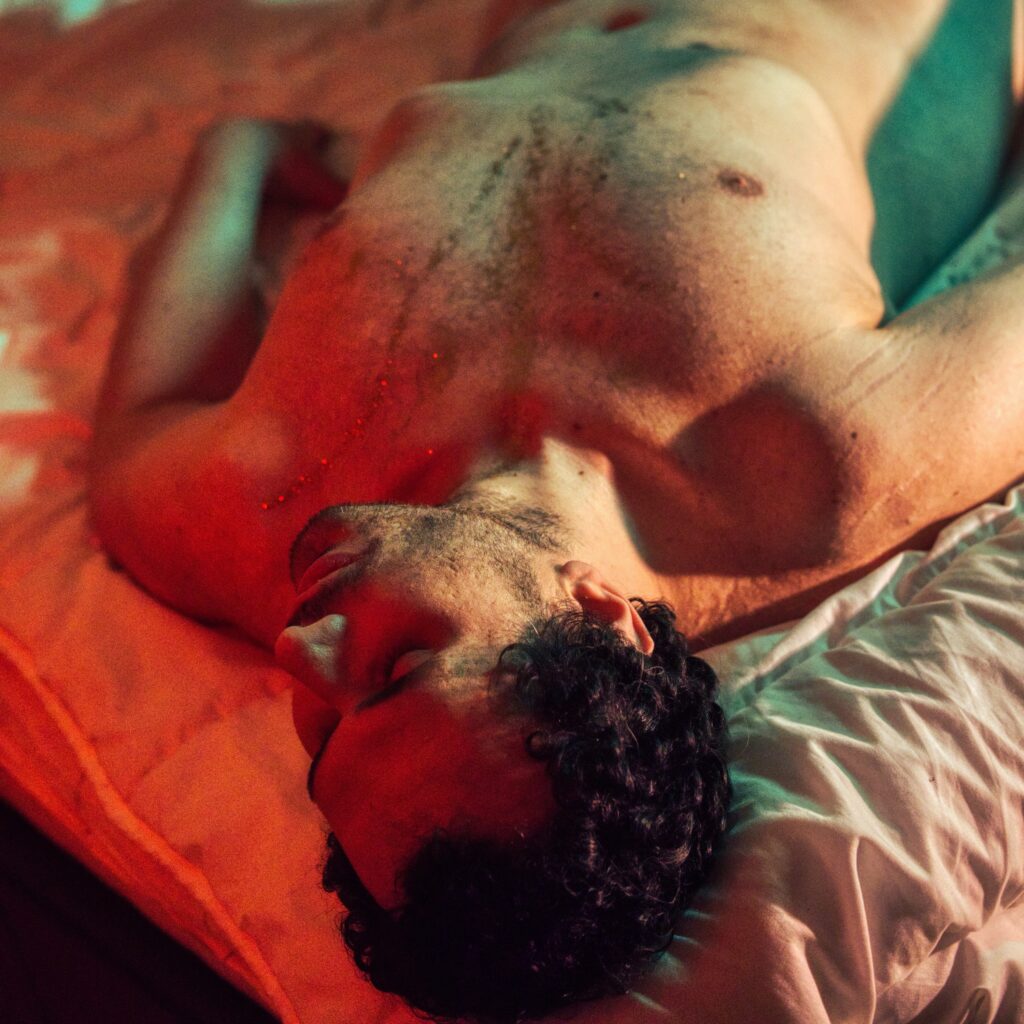How Covid became the new HIV
A ban on intimacy, mysterious symptoms, unforeseen illness and death everywhere. The current pandemic is giving gay men of a certain age flashbacks.
I remember it like it was yesterday. In 1981, I was a just-out 17-year-old gay teen in a San Francisco suburb, and my mother was watching a TV news story on a mysterious new gay disease. “It’s a plague,” she said, matter-of-factly, before going back into the kitchen to finish the dishes. Just another night in suburbia for straight folk, just the beginning of every queer nightmare for the rest of us.
Frightened as I was that evening, I never could have imagined that, first AIDS, then, after more clarity, HIV, would be acronyms that defined my generation, then the next, then become terms forever associated with gay sexuality. Some forty years later, HIV, though long away from being a death sentence, is just another complexity of our lives, along with homophobia, coming out, and figuring out if you’re a top, bottom, or both. It’s here, it’s queer, we’re used to it.
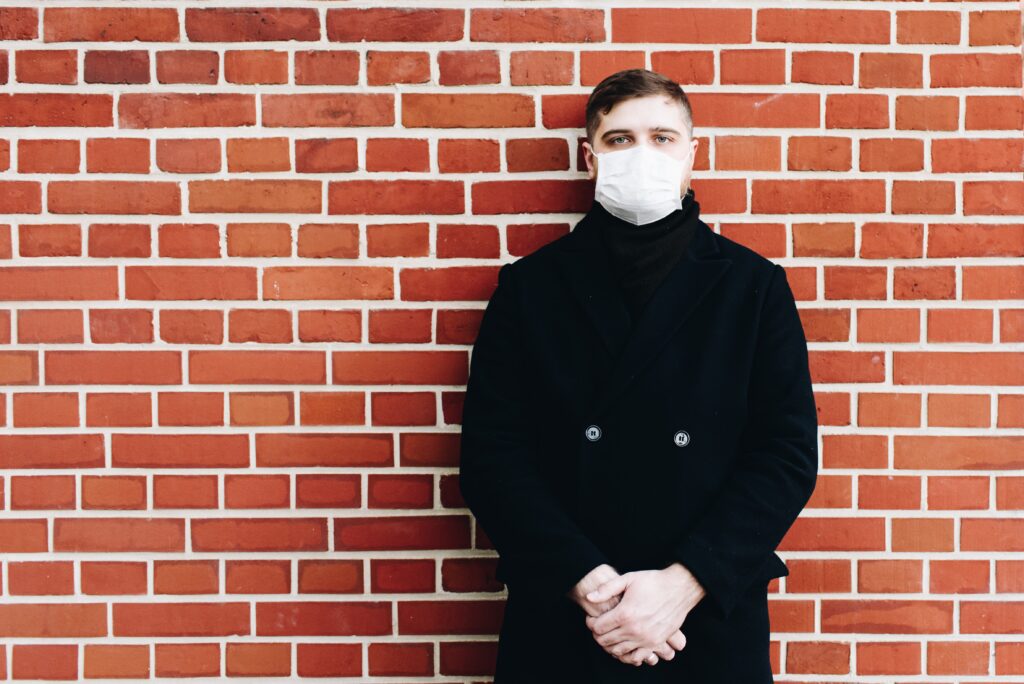
I might have officially turned into my mother on May 3, 2021, when I read The New York Times front page article, “Reaching Herd Immunity Unlikely in the U.S. Experts Now Believe.” I posted the article on Twitter, then wrote, underneath, “Covid is here to stay,” and went back to sending birthday greetings out on Facebook. Just another day on social media for straight folk, just the beginning of—nope, this time we’re all in it together.
I won’t go into the details of the NYT’s piece, but suffice it to say a lot of incompetence (that’s you, anti-maskers) and surprises lead us into a dark corner in regard to the future of what was originally referred to as “coronavirus.” There’s nothing like a global crisis to shorten the syntax. Even with all the progress we’re making, we’re now looking at a forever changed world, one that affects how we socialize, date, have sex, even mourn. If that sounds eerily familiar, we’ve also witnessed memorials and tributes and Right Wing apathy.
As a young gay man who went from watching men fuck on bar tables (in posh San Francisco drinking establishments), to watching them march for the endless dead in New York Pride parades, a transition so quick in my mind it was like cosmic whiplash, ‘new normals’ were something I understood at an early age. There was a part of me that even resented these markers; the first September 11, then 9/11 (“the day the world changed forever”) mantras, because my New York gay world had been transformed by a war before I even had a chance to ride the merry go round. You don’t like taking off your shoes at airports? Try breaking up with a boyfriend because you’re afraid his dick might kill you.
The day that Covid became the “new HIV” probably didn’t surprise me as much as it did the average straight guy because I’ve been preparing for it all my adult life. About a year ago, early on in quarantine, my sister fretted that we’d never get through this mess (especially with lunatics running the White House asylum) and wondered how Planet Earth would carry on. My inner-queer kicked in, and remembrances of a plague past dribbled out like an instruction manual. While my mother compares Covid to the polio outbreak she experienced as a child—she can still name her four friends who died or were crippled—I thought of everything growing up with AIDS has taught me about surviving through the unexpected.
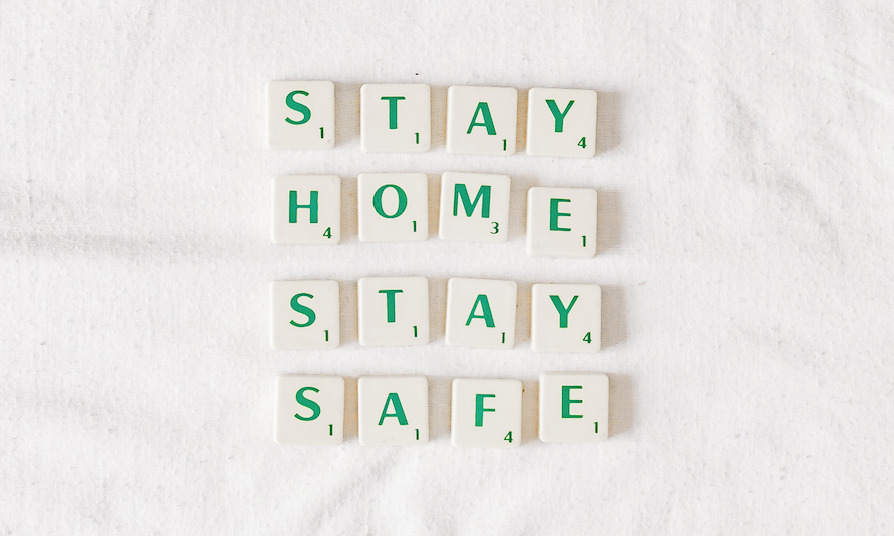
I moved to New York in 1987, in the thick of things, and adapted quickly to a crisis that seemed without end. In our own way, we did social distance, because men were afraid of any body contact. Guys jerked off across the room from each other, kissing was taboo, phone sex was the norm, and sweaty clubs were fearful to the uninformed. Condoms were the masks of our day, given out freely at bars, and sponsored by endless campaigns to wear them or die. Some refused, my then-boyfriend being one, who told me that we knew each other on a spiritual level and, thus, were safe from disease. “I’m mask-free because God will protect me,” anyone? I got rid of him faster than a Trumpster trolling my Twitter feed.
HIV tests, far more terrifying than any nasal swab, became yearly or bi-annual events, complete with parties if the news was good, therapy sessions if not. We gays didn’t get a vaccine—still haven’t—but there were cocktails and drug trials and holistic health practitioners, and conspiracy theories up the wazoo. Heck, we even had an AIDS-indifferent President. You didn’t need Grindr or Scruff because everyone could be found at this week’s memorial. As far as mass graves are concerned, why travel to India when you could head to Greenwich Village’s St. Vincent’s hospital instead?
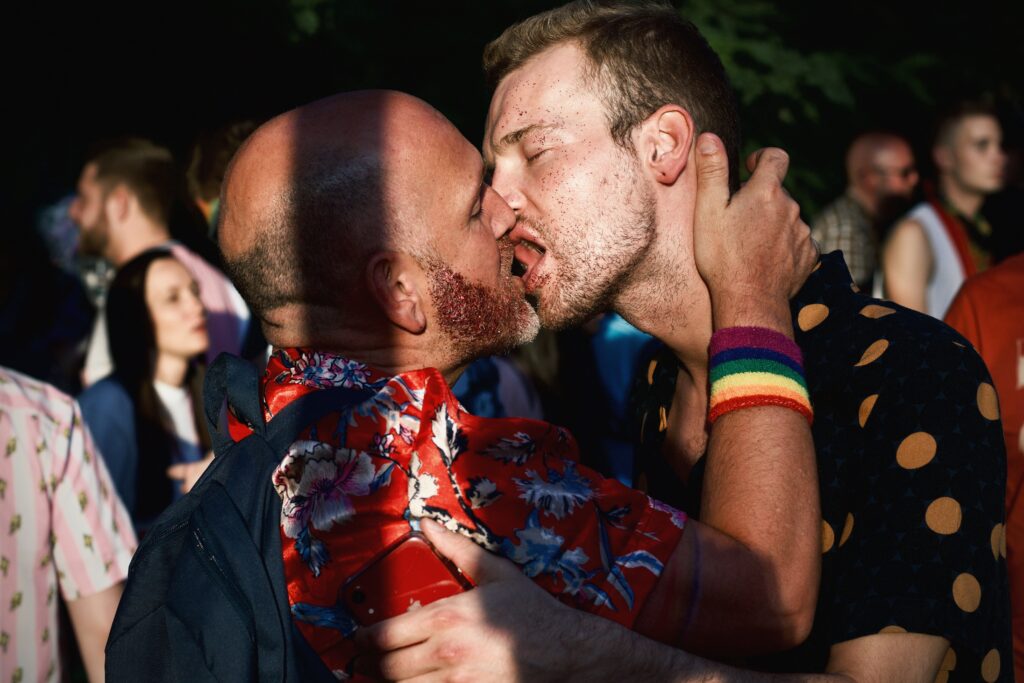
On the car ride home from Madonna’s 1990 Blond Ambition concert, my friend turned to me and said, “Remember blow jobs?” It’s that comment, not the most talked-about tour of the decade that stays with me. Because, scarily, I did, which meant I was probably next in line. That same summer I saw the 1990 flick Longtime Companion at the Chelsea Cinemas (a spanking-new multiplex for End of Times days), and, upon leaving the theater, witnessed a man, sitting all alone, dead center in front of the screen, bawling his eyes out. I have no idea where that guy is now, but I was certain at the time that gay life had come to an end. In many ways, I was correct.
Fast-forward to the spring of 2021, and the origins of HIV almost seem beside the point. As a kid, I didn’t spend a lot of time studying the causes of air pollution, it was just something our generation had to acknowledge—fresh air would never magically reappear. Some years ago, PrEP arrived, a miracle worker for men who’ve been denied the pleasure of unfiltered sex, or who never thought they’d live to see it return. U=U put an end to the killer part of the killer virus, with the added benefit of helping HIV positive men reclaim their carnal confidence. Sex, for most of us, is no longer seen as a weapon.
Nothing’s “over,” and nothing’s the same. Queers today argue over sex-related issues the way men my age used to argue over which club to hit on Saturday night. When you don’t know if you’ll live to see your next birthday, debating monogamy versus sexual freedom seems like a waste of time. Now we’ve got marriages to consider, babies to raise, rights to pursue, prejudices to overcome. And underneath it all, there’s still HIV, in our profiles, on our charts, in the medicines taken daily to keep us healthy, and in our forever mourning hearts. We haven’t changed; we’ve adapted. In a similar way, I feel Covid will remain in our backpocket for a long time. Going “maskless” at the gym for the first time on May 19, I got an early PrEP flashback, a little uncertain the new science could actually protect me from viruses floating around the hot guys sweating next to me.
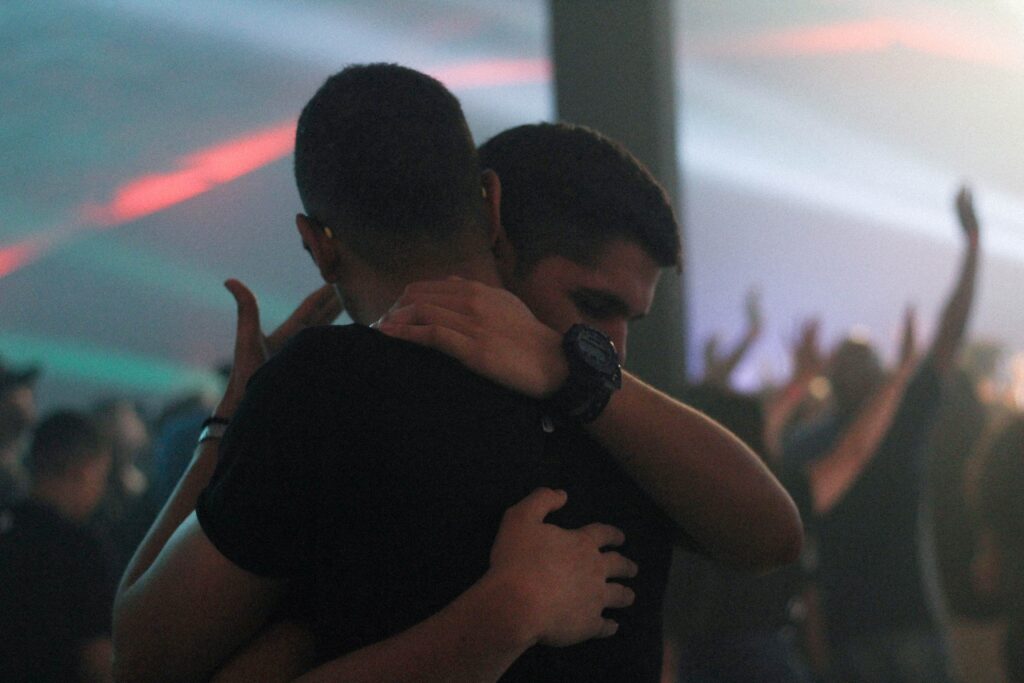
As far as sexual mores in the age of Covid, it’s been an intriguing time. For many single men, or men in open relationships, sex was cut off by choice. For others, it was hidden in the shadows. Like bareback parties in the past, guys still PnP’d with full abandon, this time thinking the only fallout might be a sore throat and loss of taste. Ironically, unlike so many myths of HIV, this time around casual sex could indirectly be the cause of your entire family and friends falling ill, some dying. And, just as ironically, kissing and other forms of intimacy have been wiped out. Men went back to jerking off in the Central Park Rambles, and hook-up apps stayed alive and well, all with conflicting messages telling people to stay home, while at the same time providing each hottie’s location.
Sex isn’t just sometimes dangerous; it’s often irresisistible. I was no prude, bringing two separate men into my sex-life bubble, both guys I’d met before quarantine. We held off for as long as our penises allowed. It was hush-hush and a little bit guilt-filled, and certainly something I never talked about—until now. With both men, it reminded me a little of closeted times, with closing blinds and whispers and little talk and quick exits to shower the memory off. And like my early years, the sex was pent-up fantasia. Slut-shaming evolved into health-shaming (coupled guys ordering single guys to practice abstinence was rich in hypocrisy, and they shouted the loudest), and if there was a bright side, it was learning that a little extra weight didn’t dampen either man’s hotness factor. Or, I’m assuming, mine. Body comfortability, especially among those of us who grew up with gym as church, is something I hope we all get a little more used to. Once those vaccinations hit, however, an inoculation card was like a ticket to ride again, although most of us seem to have limited capacity to roughly 25 percent of pre-pandemic days. How long the new limits will last is anyone’s guess.
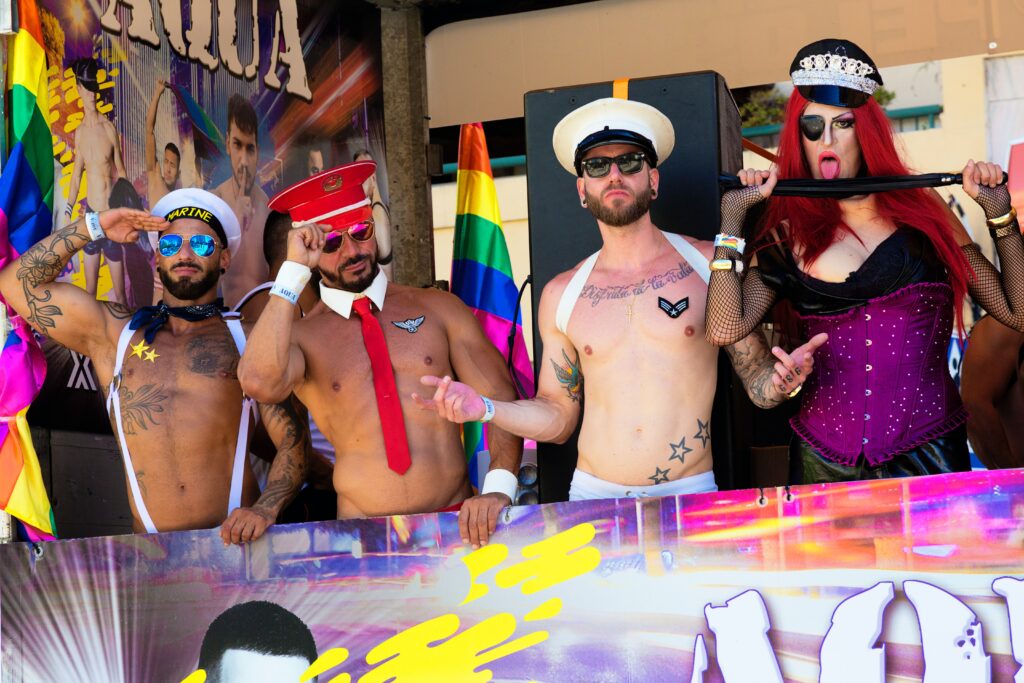
Now June is here—the gay New Year—the new pandemic is is among us, and with it yet another infuriating life adjustment to make. How’s everything going to play out when we hit the Pride events, whatever they shall be, resume our summer shares, and feel hot as hell with all the heat? After all, 2020 could have just been the pre-show, and that new, death-sentence strain could be just around the corner. Since the only certainty is uncertainty, it’s best to embrace the present, embrace each other, and, like the gays did in what seems like an eternity ago, learn to live with persistent change. Because when it comes to what normal really means, Covid is nothing new.

